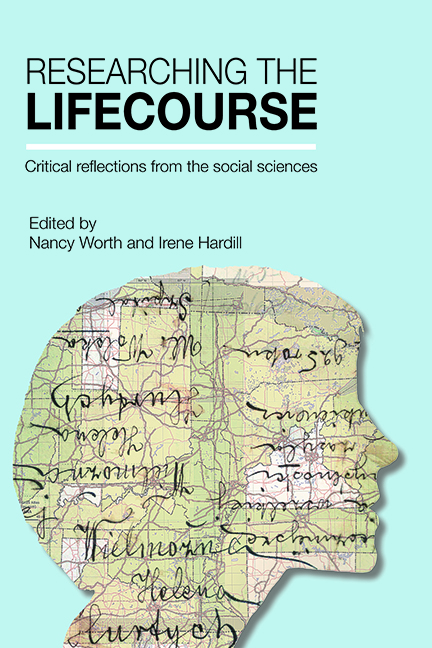eight - Keeping in touch: studying the personal communities of women in their fifties
Published online by Cambridge University Press: 08 March 2022
Summary
Friendship, space and place
This chapter is about a research project on the friendship afforded to women in their fifties by members of their ‘personal communities’ and their interactions with information and communication technologies (ICT). The research examined the informal social interactions of women in ‘midlife’ in the context of their lifecourse trajectory to date and their anticipations of the future. It focused, in particular, on the time–space context of these interactions, exploring the time–space scheduling of ‘keeping in touch’ and the real and virtual spaces within which these social interactions took place. The empirical research was carried out in the summer of 2013 in Swindon, UK. Here a ‘personal community’ is defined as a ‘network of ties’ (Wellman, 1982, p 3) with a group with whom a person has significant relationships of sociable companionship and/or informal support. The group may include both kin and non-kin members and members may not all know one another. Its membership changes over time as people cease to be or become significant or die (Spencer and Pahl, 2006).
The research focused on women in their fifties for three main reasons. First, while the use of specific age limits is arbitrary, it was a simple method for finding women in what is, for most, an important period of transition in their lifecourse trajectory. It is a time when, for many, the demands of childcare lessen, offering opportunities to establish new friendships which may be valuable in later life, while care for parents or grandchildren may become more onerous. It is also a time when retirement is no longer distant and health worries may increase. Very little research, apart from Airey (2005), has examined this significant period in women’s lives.
Second, women in their fifties now have experienced major changes in the opportunities open to and in social expectations of women. Consequently most of these women will have spent significant periods in employment and many will have experienced job change, divorce or repartnering, which is likely to have affected the membership of their personal communities. In these respects their experiences are different from those of the women in their 70s and 80s whose friendships and social support in old age have been widely studied in earlier research (Jerrome, 1992; Qureshi and Walker, 1989; Wenger, 1991; Gray, 2009) or of many of the women included in earlier studies of kinship and friendship (Willmott, 1987; O’Connor, 1992; Finch and Mason, 1993).
- Type
- Chapter
- Information
- Researching the LifecourseCritical Reflections from the Social Sciences, pp. 143 - 160Publisher: Bristol University PressPrint publication year: 2015

